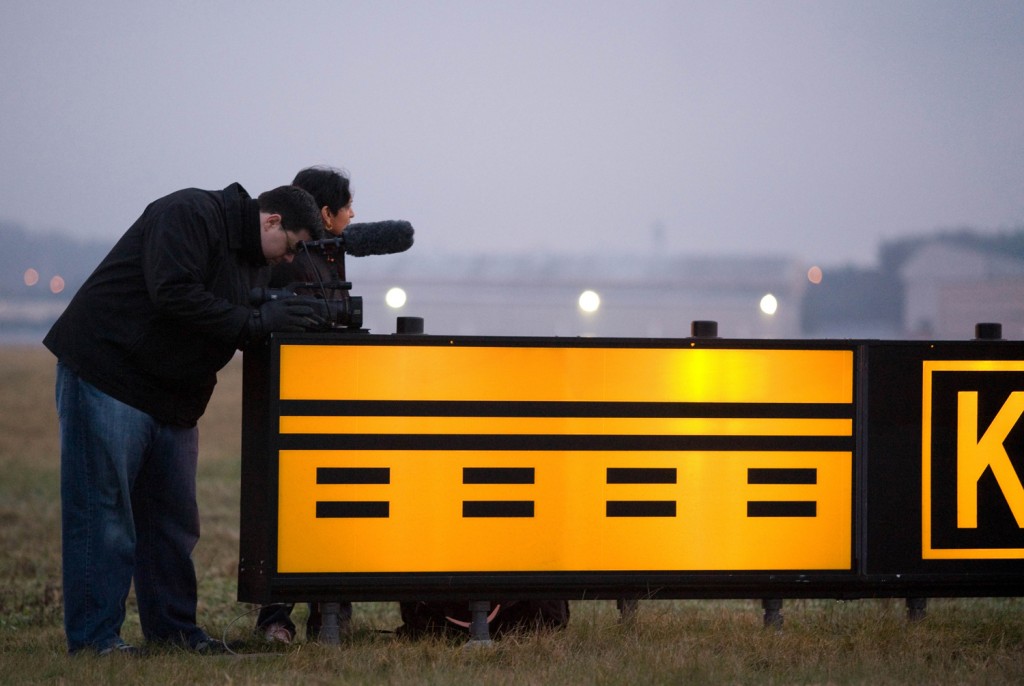Today’s guest post is the second of five from filmmakers Gita Pullapilly and Aron Gaudet concerning their experience making and distributing THE WAY WE GET BY.
In November, we got a call from POV. We were being picked up for the 2009 season. Around that time, we also found out ITVS LINCS had approved us for funding. With a national television broadcast now in place, we were on the path to reaching our goals.
Now, we had to figure out the festival, theatrical, DVD, digital and online markets. Surely with a broadcast in place, other outlets had to at least be interested?
We started reaching out and calling theatrical and DVD distributors, trying to see if maybe with a television broadcaster in place, they would want to acquire our film. Our eagerness quickly turned to despair as we began to place more calls to distributors.
Every theatrical distributor that took our phone call basically told us our film had no theatrical appeal. Without even seeing a cut, they would cut us off and say something to the effect of “your film is about old people and troops—no thanks.” It was incredibly frustrating. We knew there was a market out there for our film. Nearly one million troops had been through Bangor and actually met our film subjects—shaking their hands and giving them hugs. On top of that, these troops had families and friends spread out all over the country that wanted to know these greeters that had been there for their loved ones.
By this time, we also had several national groups interested in supporting our film and our grassroots efforts—National Council on Aging, HandsOn Network, Vietnam Veterans of America. These groups had significant memberships that we hoped we could rally.
Feeling we weren’t getting a fair shake, Aron and I decided to take control of the distribution of our film. We needed a plan to identify and maximize all the different revenue streams, and we needed to think of ways to tap into supporters of the film more than just financially. We felt scared and excited at the same time, but we also felt a real sense of freedom. Since no one had any definitive answers on how to successfully distribute on your own, we used our film as a testing ground for every possible distribution method we could come up with. We knew it would take a ton of work, but also be a valuable learning experience—a perfect choice for our film and our careers.
Through a little research, I found a professor at Harvard Business School, who worked with major studios helping them with their business models. I approached her and after a little convincing, she agreed to have her students work on a business model for The Way We Get By.
 After explaining the distribution situation, the students spent the first month calling and talking with others in the industry. They found direct DVD retailers for us, researched fulfillment houses, and developed marketing data that we could take to distributors like Netflix and Amazon, showing potential sales and rentals.
After explaining the distribution situation, the students spent the first month calling and talking with others in the industry. They found direct DVD retailers for us, researched fulfillment houses, and developed marketing data that we could take to distributors like Netflix and Amazon, showing potential sales and rentals.
In the end, the report provided us with a game plan— but the question was —could we pull it off and honestly– did we really want to?
END PART II. Part III will continue tomorrow with “Going Local and Maximizing Your Distribution Window”
Part One: Finding A Spot In The Line-Up
Part Two: Timing Is Everything
Part Three: Going Local & Maximizing Your Distribution Window
Part Four: Minimize Your Loss And Hope For A Greater Payoff In The End
Part Five: Going Local Pays Off
Gita Pullapilly and Aron Gaudet are now working on their next project—a narrative feature, “Go Baby” they plan to shoot early next year. They recently launched SUNNY SIDE UP FILMS, www.sunnysideupfilms.com, which also supports the national distribution of independent films.
Tune in to see The Way We Get By for its encore presentation as part of the 2010 season on POV August 3, 2010. For more information, visit: www.thewaywegebymovie.com





